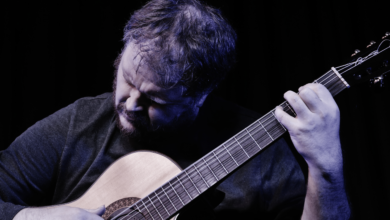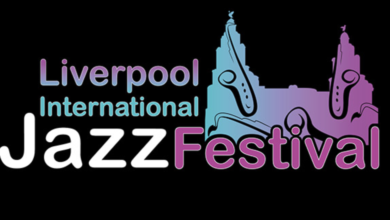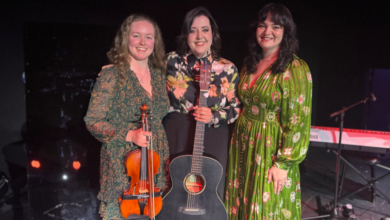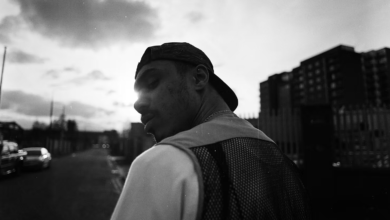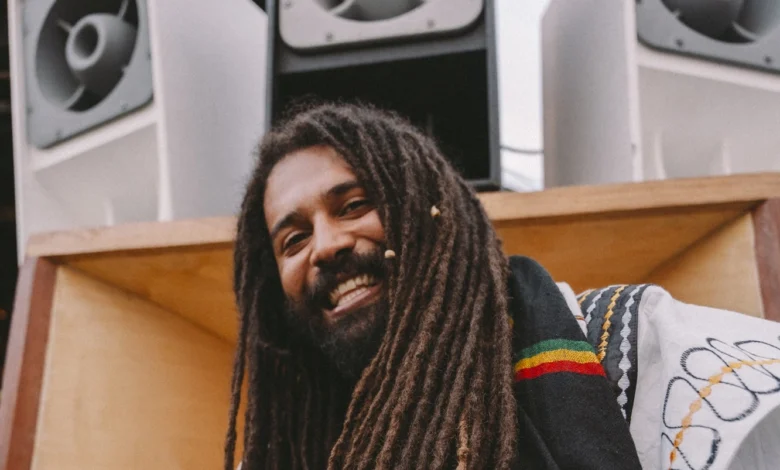
Rhythms of Resistance: An Interview with André Jahnoi
André Jahnoi is a force of nature – a lyrical insurgent whose bars blaze with the fire of roots reggae, the swagger of Southern rap, and the unflinching clarity of abolitionist politics. Raised on the revolutionary sounds of Bob Marley and Burning Spear, his path took a sharp turn when a mistaken CD purchase at age 12 introduced him to Lil Wayne – sparking a love affair with hip-hop that gave him a new voice and a powerful platform.
Ahead of his appearance at the Penny Lane Weekender, we caught up with André to talk about how Liverpool has shaped his sound, the revolutionary themes that run through his music, and what kind of energy new fans can expect when he hits the stage. One thing’s certain: this is more than just performance – it’s a movement.
Please let us know a little about your journey, what started you in music and what were your earlier influences?
André: I’m a child of roots reggae and grew up blazing fire pon Babylon to the sounds of Bob Marley, Peter Tosh and Burning Spear. When I had my own likkle pocket money, I started branching out into more modern reggae (Damian Marley, Sizzla, Buju Banton) and those higher-tempo flows lit something in me early on.
Then when I was 12, I walked into HMV and accidentally bought a Lil Wayne CD thinking he was jamaican artiste I Wayne. I pressed play and flipped a switch, falling headfirst into hip-hop. The swagger and grit of the South (UGK, Big KRIT, Curren$y) and the bounce and wordplay of New York boom bap – it all felt like a language I already understood and crucially, one that I could speak back. I had always been told I couldn’t sing so never considered music as a path for me until then, but I always had a way with words and bars gave me a way in.
I started off spitting on the back of the school bus, remixing grime and hip-hop tunes with my boys just to show each other we could. But after putting on a couple of under-18 club nights funded my first home studio, it got serious. My early tracks were full of teenage dreams and mischief, but over time, I leaned into my growing political awareness and started using my craft to say something real.
At uni in Oxford I performed anywhere I could get hold of the mic, from street protests to black-tie balls to underground clashes. That hunger’s taken me all over the world, sharing my tunes as far away as Jamaica, Colombia and New York. But when I moved back to Preston after graduating, I hit pause. Took time to ask: what’s this really about?
That space was crucial. It allowed me to find my grounding, clarity, and a mission. Since then—it’s been forward ever backward never.
Your lyrics showcase a great depth and breadth of political understanding. For people new to your music, would you mind providing us with some of the key themes you cover?
André: My music is rooted in love and liberation: what they feel like, how they’re linked, and how we fight to get more of both. I was raised on the sounds of sufferation, so for me, music has always been about truth-telling and soul-feeding.
I’m an abolitionist. That means I’m riding for the fall of each and every oppressive structure constraining our freedom to live joyously. Prisons, patriarchy, imperialism – the whole lot. So in my lyrics you’ll hear touching on everything from the companies that profit from persecuting migrants to how capitalist consumerism twists our romantic relationships. But I’m not just here to chant doom and point our problems. I believe radical imagination is one of the most powerful tools we have in our arsenal. We’ve got to envision the versions of ourself and the world that we need, even before we know how to build them.
So yeah, I bun out Babylon in my tunes. But mostly, I’m helping to build something brighter in its place. It’s about connection, resistance, and dreaming loudly.
Has Liverpool shaped your songwriting and lyrics, given it’s key role in British colonial oppression, a subject you cover to a great extent in your music?
André: Absolutely. Liverpool has shaped my outlook, my politics, and my pen. Some of my realest lyrics were scribbled while staring out at Toxteth through ten-foot windows in converted mansions, contemplating the blood spilled to build the beauty I see around me.
That tension of loving a place that holds so much pain is at the core of a lot of my writing. Liverpool is a city of contradictions: proudly socialist, deeply loving, yet home to fascists burning down libraries and chasing asylum seekers. It’s heartbreaking and galvanising in equal measure, and always on my mind as I figure out where to put down roots and how deep. Another way this translates into my songwriting is the fusion of dialects, blending my Jamaican roots with scouse slang. Who else is spitting “you better wobble unuh head kid, you gwaan like yuh chupid”? That clash of cultures is me.
The Penny Lane Weekender is a festival people go to find new bands. For people coming to see you for the first time, what type of performance will you be bringing?
André: My live show is a carnival of insurrectionary energy! I bring riddims from across the African diaspora to get you skanking, and non-stop bars to make you laugh, reflect and buss gun fingers all at once.
I come from a tradition where performance is the pinnacle. Reggae culture taught me that live music should uplift and unite, so every set I do is about connection. Expect radical enegy, call-and-response resistance chants, and whole heapa sweat on the dancefloor. If you love your community and hate the system, come two-step pon babylon neck with I!
Who are your top 3 picks for artists to check out at the festival?
André: This isn’t my usual scene, which is actually a blessing as it means I get to soak in fresh sounds with open ears! I’ve been glued to the reels going out on the socials, and so many artists have caught my attention. KULTURESS look like a vibe (island sounds meeting hip-hop? Say less) and Qujaku out of Japan look like an experience. But the one I’m hyped for most is Fraya Ofoeme. I’ve seen her live a few times of the past few years and each time she finds a way to level up. Powerhouse voice, serious crowd control; trust me, don’t miss her set.
A final question, what is your favourite thing to eat before a show, or do you have a go to take away for after a performance?
André: Before a show, my belly rarely sekkles so I don’t actually eat much. I usually stick to a big plate of fresh fruit in the morning and sip yerba maté through the afternoon – helps me stay sharp without feeling heavy.
Also, cos I eat ital (plant-based) post-show food options are limited on babylon streets! But when the adrenaline wears off around midnight, I’m usually in the kitchen whipping up fried dumpling and stew peas with some roots reggae playing in the background. No better way to reset (and confuse the body clock even more!)
André plays the Penny Lane Weekender 2025 (8 – 10 August). Tickets are on sale now.




